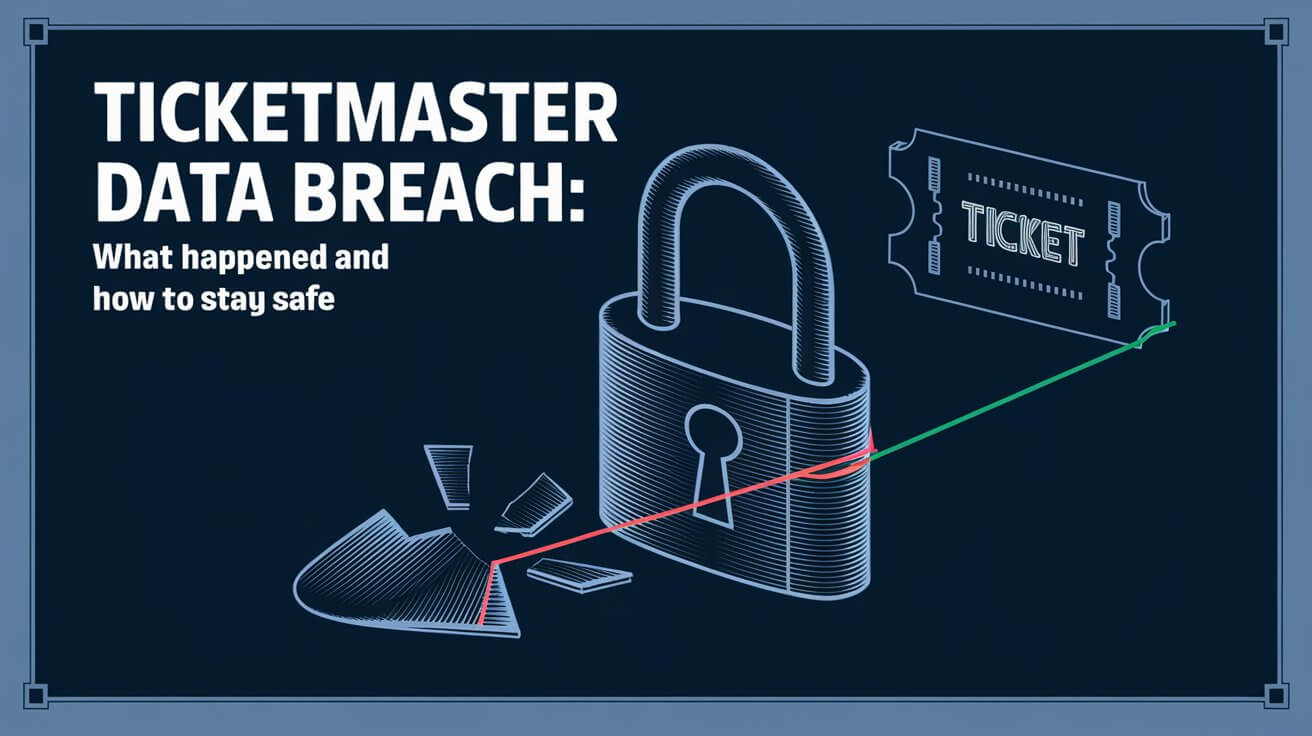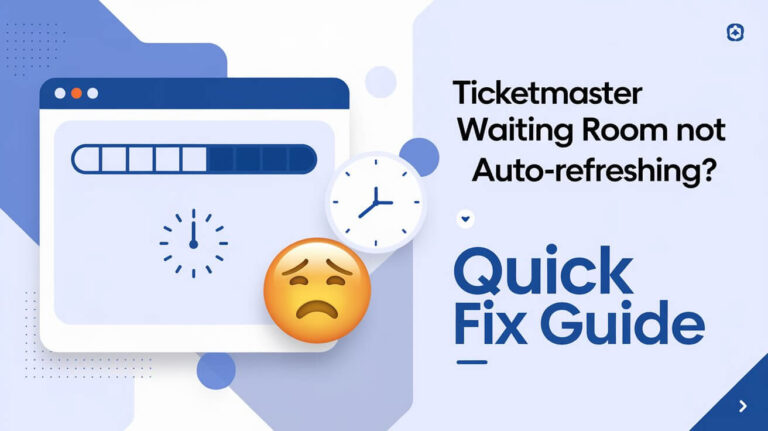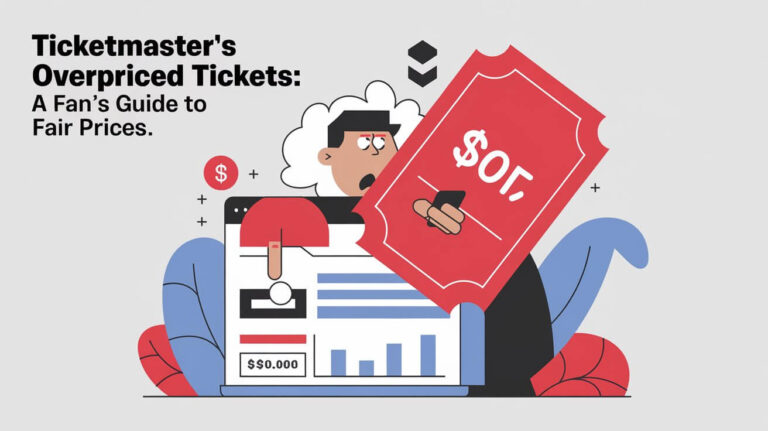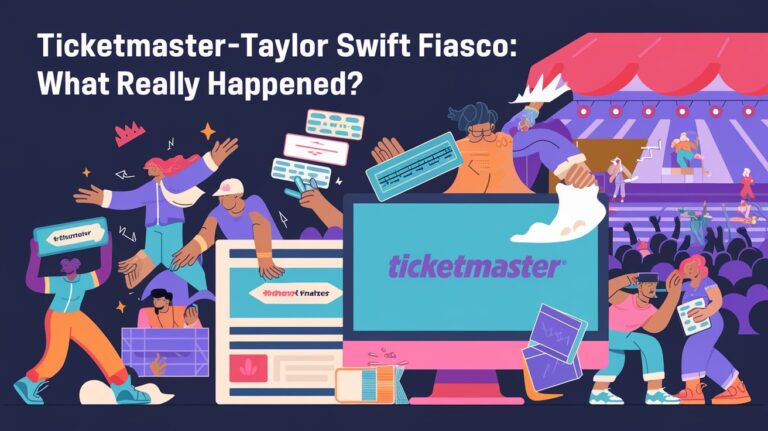
Ticketmaster did indeed suffer a major data breach in 2024, exposing personal information of millions of customers. This security incident sent shockwaves through the entertainment industry and left many concertgoers worried about their data safety.
In this post, we’ll explore the details of the Ticketmaster hack, its impact on customers, and what you can do to protect yourself. We’ll cover the timeline of events, the types of data compromised, Ticketmaster’s response, and steps you can take to safeguard your information.
The Ticketmaster Hack: A Timeline of Events
Initial Discovery and Announcement
On May 20, 2024, Ticketmaster detected unauthorized activity in a third-party cloud database. The company quickly launched an investigation, working with cybersecurity experts to understand the scope of the breach.
Live Nation, Ticketmaster’s parent company, filed a notice with the U.S. Securities and Exchange Commission on May 28. This filing alerted shareholders to the potential data breach, marking the first public acknowledgment of the incident.
Extent of the Data Breach
As the investigation unfolded, the true scale of the breach became clear. The hack affected a staggering 560 million Ticketmaster customers worldwide. This massive number includes users from various countries, with a significant impact on North American customers.
The Maine Attorney General’s office received a data breach notification from Ticketmaster on July 8. This document confirmed that over 1,000 people were affected, though the actual number is likely much higher.
ShinyHunters: The Group Behind the Attack
The notorious hacking group ShinyHunters claimed responsibility for the Ticketmaster breach. Known for targeting high-profile companies, ShinyHunters has a history of stealing and selling large datasets on the dark web.
On May 28, the group posted an ad on a hacking forum, offering the stolen Ticketmaster data for $500,000. This bold move brought the breach into the spotlight and raised concerns about the security of customer information.
What Information Was Compromised?
Types of Personal Data Exposed
The Ticketmaster data breach exposed various types of customer information:
- Names
- Email addresses
- Phone numbers
- Mailing addresses
- Encrypted credit card details
- Ticketing information
In July, ShinyHunters claimed they also had access to barcode data for hundreds of thousands of tickets to Taylor Swift’s Eras tour. This revelation added another layer of concern for customers.
Potential Risks for Affected Customers
The exposed data puts affected customers at risk of:
- Identity theft
- Phishing attacks
- Financial fraud
- Unauthorized ticket access (though Ticketmaster’s dynamic barcode system mitigates this risk)
Customers should stay alert for suspicious emails, texts, or phone calls that might use their personal information to appear legitimate.
Ticketmaster’s Response to the Data Breach
Official Statements and Actions Taken
Ticketmaster took several steps to address the data breach:
- Launched an investigation with forensic experts
- Notified law enforcement and regulatory bodies
- Offered affected customers 12 months of free identity monitoring services
- Advised customers to monitor their accounts for suspicious activity
The company emphasized that Ticketmaster accounts remained secure and that customers could continue to use the platform normally.
Criticism of Ticketmaster’s Handling
Despite these efforts, Ticketmaster faced criticism for its handling of the breach:
- Delayed customer notifications: Many users received emails about the breach in July, over a month after its discovery.
- Limited initial disclosures: The company first mentioned only basic contact information being accessed, later revealing that more sensitive data was compromised.
- Lack of transparency: Some customers felt Ticketmaster wasn’t forthcoming enough about the breach’s full extent.
How to Check if You’re Affected by the Ticketmaster Breach
Official Notification Process
Ticketmaster stated it would notify affected customers via email or first-class mail. If you haven’t received a notification, the company believes your sensitive information wasn’t involved in the breach.
Self-Check Methods
Even if you haven’t received an official notice, you can take steps to check if your data was compromised:
- Review your Ticketmaster account for any unusual activity
- Check your email inbox and spam folder for communications from Ticketmaster
- Monitor your credit reports for any suspicious entries
- Use online tools that check if your email was involved in known data breaches
Protecting Yourself After the Ticketmaster Data Breach
Immediate Steps to Take
If you suspect your data was part of the Ticketmaster breach, act quickly:
- Change your Ticketmaster password immediately
- Update passwords on other accounts where you’ve used the same or similar credentials
- Enable two-factor authentication on your Ticketmaster account and other online services
- Review your credit card statements for any unauthorized charges
- Consider freezing your credit to prevent new accounts from being opened in your name
Long-Term Security Measures
To protect yourself from future data breaches:
- Use unique, strong passwords for each online account
- Regularly monitor your credit reports and financial statements
- Be cautious about sharing personal information online
- Consider using a password manager to keep track of complex passwords
- Stay informed about the latest cybersecurity threats and best practices
The Broader Impact of the Ticketmaster Data Breach
Industry-Wide Implications
The Ticketmaster breach highlights several issues facing the entertainment and ticketing industry:
- Increased focus on cybersecurity in the events sector
- Growing concerns about the amount of personal data collected by ticketing platforms
- Potential for stricter regulations on data protection in the industry
- Need for improved security measures in cloud-based systems
Regulatory and Legal Consequences
The data breach could lead to significant consequences for Ticketmaster:
- Potential fines from data protection authorities
- Class-action lawsuits from affected customers
- Increased scrutiny from regulators on Ticketmaster’s data handling practices
- Possible impact on the company’s reputation and customer trust
Lessons Learned: Improving Data Security in the Event Industry
The Importance of Third-Party Security
The Ticketmaster breach underscores the critical need for robust third-party security measures:
- Regular security audits of third-party vendors
- Stricter access controls for external partners
- Enhanced encryption for data stored on third-party platforms
- Clear security protocols and expectations for all partners
Enhancing Incident Response Plans
Companies can improve their incident response based on Ticketmaster’s experience:
- Develop and regularly test comprehensive incident response plans
- Establish clear communication protocols for notifying customers and stakeholders
- Invest in advanced threat detection and monitoring systems
- Train employees on cybersecurity best practices and incident response procedures
Frequently Asked Questions About the Ticketmaster Data Breach
Is it safe to use Ticketmaster now?
Ticketmaster claims its platform is secure, but users should remain vigilant and follow best security practices.
How long did it take Ticketmaster to discover the breach?
The company detected unauthorized activity 51 days after the initial breach.
Can hackers use the stolen ticket barcodes?
Ticketmaster’s dynamic barcode technology makes it difficult for hackers to use stolen barcodes effectively.
Additional Resources for Affected Customers
- Ticketmaster’s official data breach information page
- Federal Trade Commission’s identity theft recovery steps
- Annual Credit Report website for free credit report access
- Cybersecurity awareness training resources
Conclusion: Moving Forward After the Ticketmaster Data Breach
The Ticketmaster data breach serves as a stark reminder of the ongoing threats to personal data in our digital world. While the company has taken steps to address the issue, customers must remain proactive in protecting their information.
Stay informed, use strong security practices, and stay alert to reduce your risk from data breaches. Keep updating how you protect your personal information as digital technology changes.
Remember, the Ticketmaster breach is just one example of the broader cybersecurity challenges we face. By learning from this incident, both companies and individuals can work towards a safer digital future.




![When Does Ticketmaster Waiting Room Open? Best Times & Tips [2024] 5 When Does Ticketmaster Waiting Room Open](https://theticketlover.com/wp-content/uploads/2024/10/when-does-ticketmaster-waiting-room-open-768x431.jpeg)

